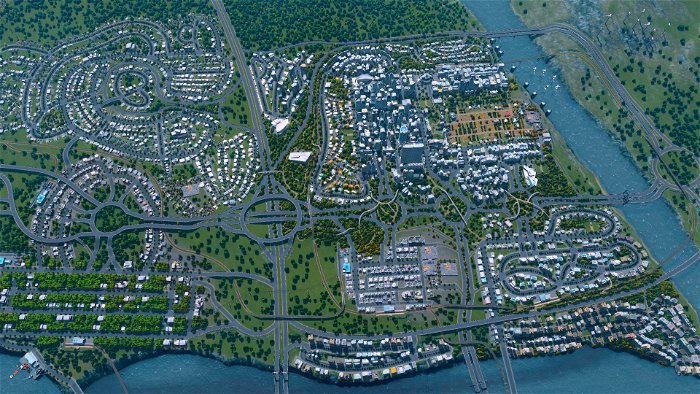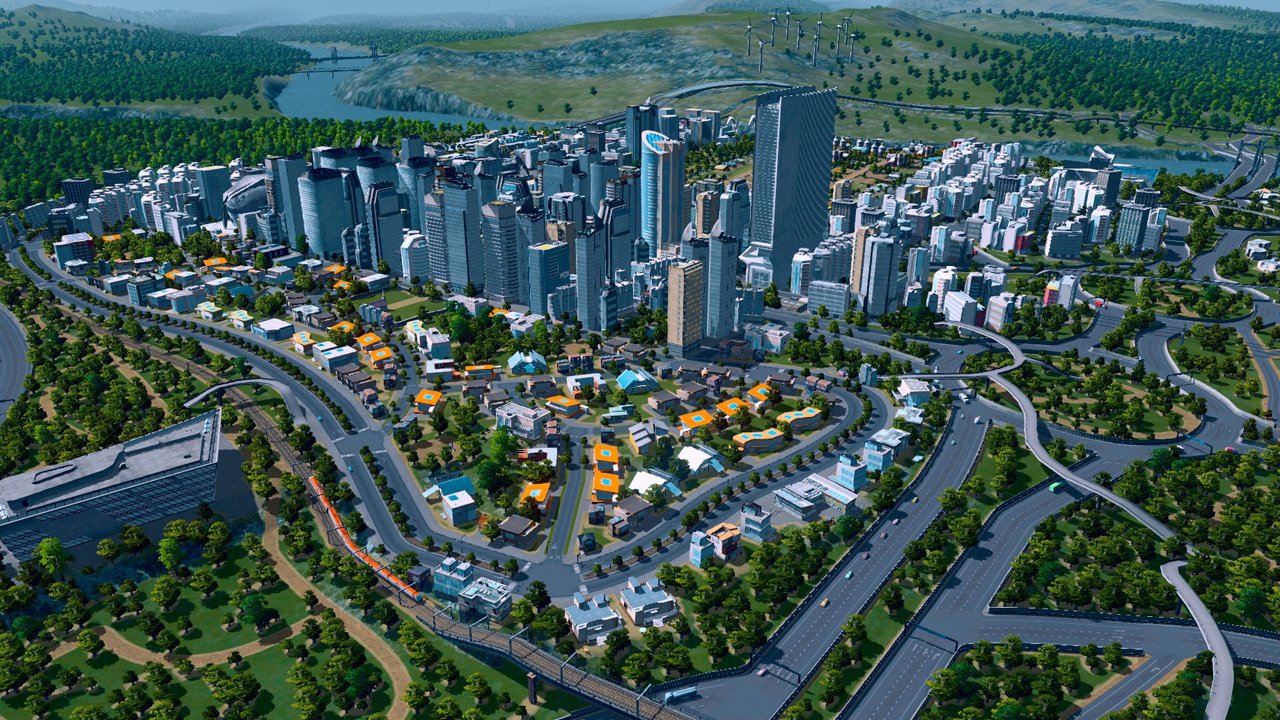Cities: Skylines arrived on PC in the beginning of March, and was quickly met with immense critical reception, and healthy commercial performance. Labeled as a city-building game, Finnish game developer Colossal Order was able to deliver a polished experience, with a fastidious attention to detail. The small studio, which is made up of only 13 people, wanted to create a title with a broader scope than its transportation-focused Cities in Motion game.

Publisher Paradox Interactive initially was reluctant to give proper funding to help Colossal Order develop Cities: Skylines, as the publisher thought the market for city simulations was dominated by SimCity. But once the latter game was panned, and suffered from a plethora of technical issues Paradox was finally confident enough to greenlight Cities: Skylines.
The technology that’s used for the game is highly complicated, and impressive. The game is able to simulate a city with up to 1 million residents, and contains complex road and transit systems, which exude transit congestion. The game was also build from the ground-up to be friendly to player-created modifications, extending the game’s relevancy, and the interest people have in it. Colossal Order realized that by adding modifications this ability would be important to players and would not devalue the game – they were right. Within only a month of the game’s release, over 20,000 assets had been created in the workshop.
We had a chance to sit down and talk briefly with Paradox Interactive’s community manage Malin Söderberg about the game, what the future holds for it, and just why it was able to become such a success.
Comics Gaming Magazine: Were you guys surprised at all with the great reception Cities: Skylines received, and what do you think most contributed to such as positive reaction?
Malin Söderberg: It has truly been amazing to see so many people enjoy Cities: Skylines. We did not expect such success so fast after the release! I think the players really responded well to the sandbox gameplay and modding tools as well as to the open communication from our publisher Paradox Interactive and us devs about who we are and what the game is about.
CGM: The game is often called a competitor to SimCity, do you guys agree? And if not, why?
MS: In a way it is a competitor as both are city builders. It still feel a bit overwhelming to think about as we are fans of the SimCity series since childhood.
CGM : Can you briefly delve into the technology behind the game? For example, how big of an influence, and role did Cities in Motion play with the robust transportation system?
MS: Cities in Motion naturally taught us a lot about the simulation systems and how they should be implemented. He tried to improve on that by starting from a clean slate with all that we learned in mind. City builder is after all a different beast from a transport simulator, but the similarities are intentional as we felt some systems really worked well for both games.
CGM: Is the addition of modding adding an extra layer, and depth to Cities: Skylines? If yes, how so?
MS: Modding definitely adds something new to the game. The sheer amount of assets and creativity that comes from the community is just wonderful. It gives the players tons of choices to customize their game experience and it truly makes a difference from one play time to another.
CGM : And finally, what does the future look for the game?
MS: More mods from the community and more updates both free and paid from us devs. I believe together we can make Cities: Skylines a classic!




